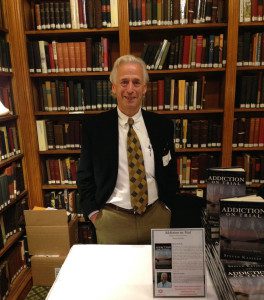Can a Murder Mystery Be Literary Fiction?
Why did I write a medical murder mystery/legal thriller. Easy answer: to become a famous author and to have my book become a blockbuster Hollywood movie! Really? – NO - Not really. But I did write Addiction On Trial to educate through the back door – to reach the areas of our brains that typically we do not want to access after a long day at work. My goal was to reach an audience of readers who yearn to escape into a page turning novel; readers who understandably do not want to pick up a scientific book about addiction at the beach or in front of a crackling fire. So why am I questioning if a Murder Mystery can be Literary Fiction?
When the Coalition on Physician Education in Substance Use Disorders (“COPE”) asked me to read excerpts from my novel to thirty-five medical school curriculum deans and then the Philadelphia College of Osteopathic Medicine chose to use my book in its curriculum to decrease bias among medical students and other allied health care professionals toward addictive illnesses, I started to ask the question, Can a Murder Mystery Be Literary Fiction?
Literary Fiction is a term generally used for fictional works that hold literary merit - novels that offer social commentary, political criticism, or focus on the individual to explore some part of the human condition. Other definitions state that Literary Fiction does not emphasize plot as much as commercial fiction, but focuses on the "inner story" of the characters who emotionally drive the plot to capture the reader’s interest.
- So, who kills Annette – is it Jimmy?
- Can a heroin addict be capable of saving another’s life on the high seas?
- Should the physician father of the accused murderer and heroin addict blame himself?
- Is addiction a disease?
- Should society pay to treat an “addict”?
- What does it feel like to be a heroin addict in jail?
- Do addicts have a silent code to protect one another?
These are just some of the questions posed in Addiction On Trial and the answers are imbedded within subliminal social commentary and political criticism, and through the characters who emotionally drive the plot.
I hope you will give it a try and let me know if you think I am full of malarkey 🙂










